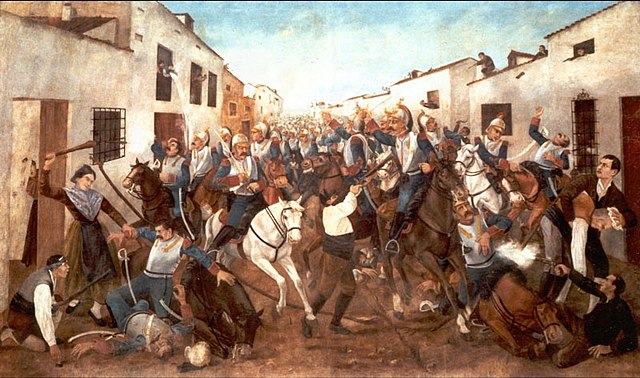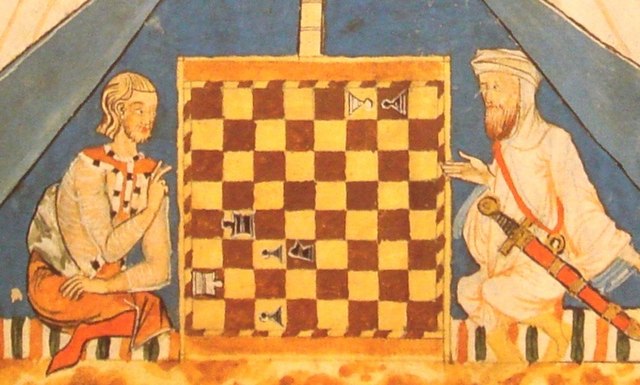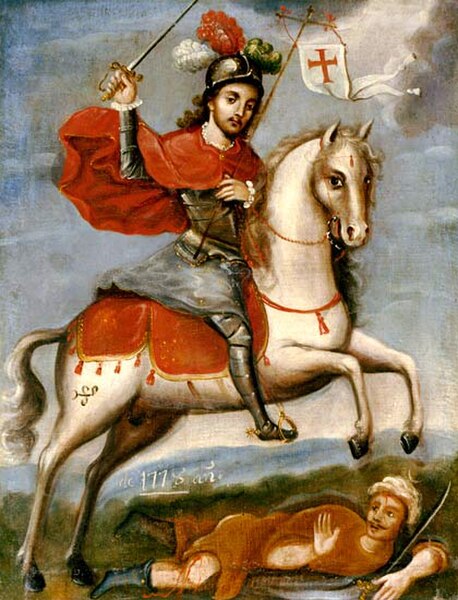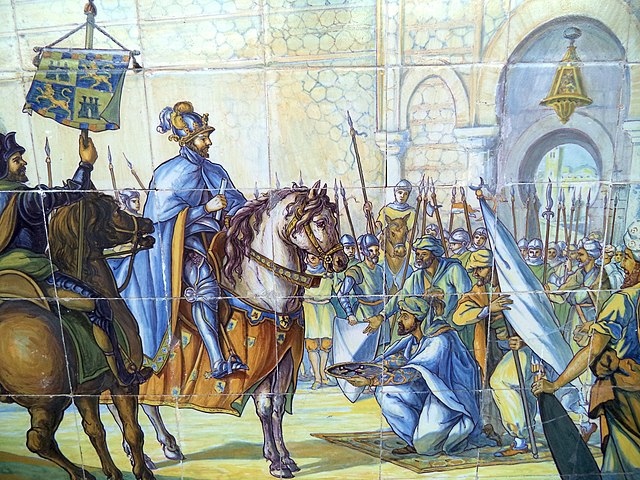The creation of the tradition of the political community of Spaniards as common destiny over other communities has been argued to trace back to the Cortes of Cádiz. From 1812 on, revisiting the previous history of Spain, Spanish liberalism tended to take for granted the national conscience and the Spanish nation.
"Put a [Spanish] flag on your balcony" campaign in 2018.
Spanish guerrilla resistance to the Napoleonic French invasion of Spain at the Battle of Valdepeñas
Francoist demonstration in Salamanca in 1937
Von Ribbertrop, Himmler, Franco and Serrano Suñer
The Reconquista or the reconquest of al-Andalus was the successful series of military campaigns that European Christian kingdoms waged against the Muslim kingdoms following the Muslim conquest of the Iberian Peninsula by the Umayyad Caliphate. The beginning of the Reconquista is traditionally dated to the Battle of Covadonga, in which an Asturian army achieved the first Christian victory over the forces of the Umayyad Caliphate since the beginning of the military invasion. Its culmination came in 1492 with the fall of the Nasrid kingdom of Granada to the Catholic Monarchs.
Detail of the Cantiga #63 (13th century), which deals with a late 10th-century battle in San Esteban de Gormaz involving the troops of Count García and Almanzor.
One of the arguments challenging the concept of Reconquista is that for the majority of the 781 years of Islamic rule in Iberia, Muslims and Christians coexisted and were not at war with each other.
Saint James the Great depicted as Saint James the Moor-slayer. Legend of the Reconquista
20th century ceramic depiction of the conquest of Toledo by Alfonso VI, at the Plaza de España

!["Put a [Spanish] flag on your balcony" campaign in 2018.](https://upload.wikimedia.org/wikipedia/commons/thumb/5/5f/Campa%C3%B1a_PP_Madrid_%22_Pon_una_bandera_en_tu_balc%C3%B3n%22._%2844686345172%29.jpg/640px-Campa%C3%B1a_PP_Madrid_%22_Pon_una_bandera_en_tu_balc%C3%B3n%22._%2844686345172%29.jpg)






